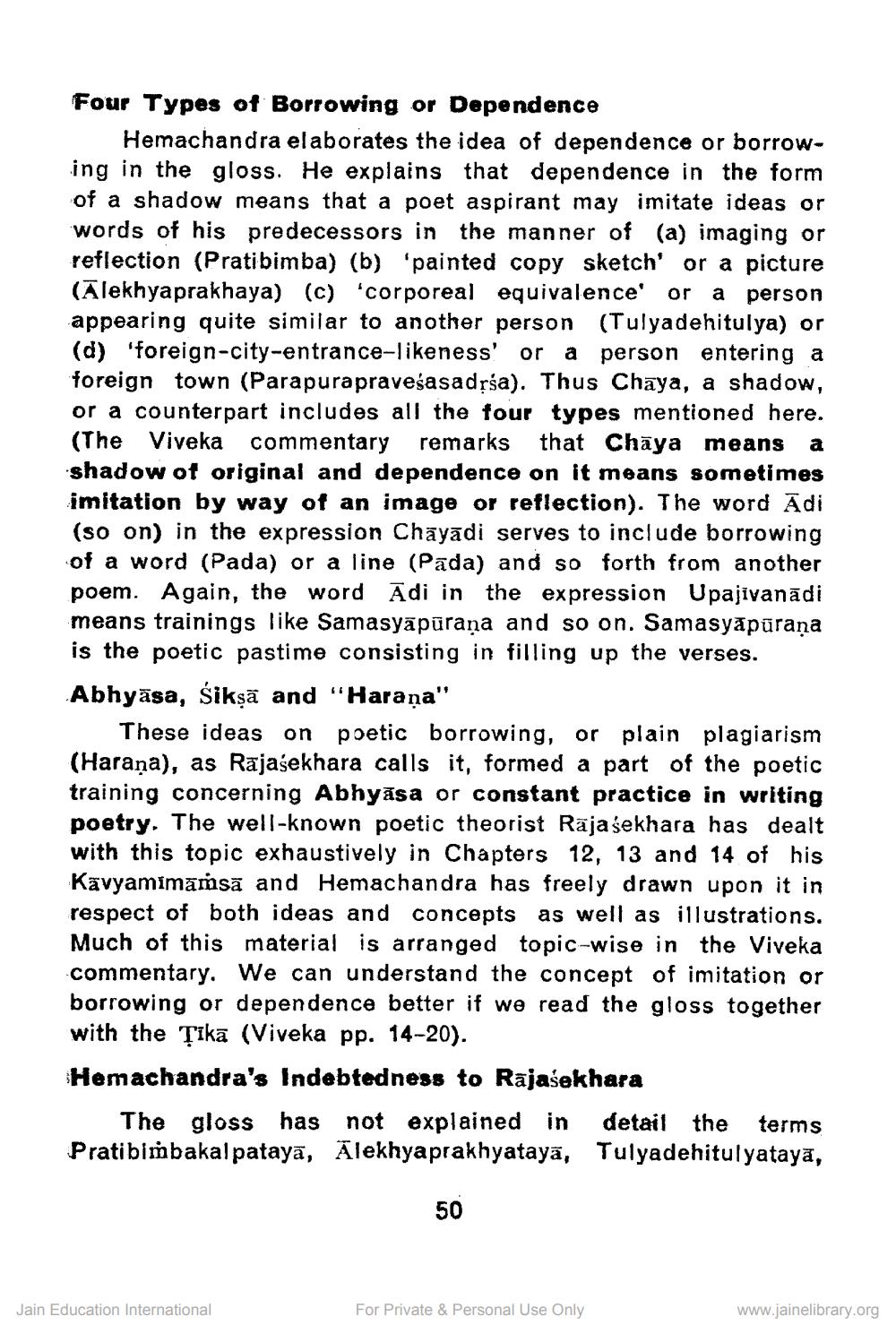________________
Four Types of Borrowing or Dependence
Hemachandra elaborates the idea of dependence or borrowing in the gloss. He explains that dependence in the form of a shadow means that a poet aspirant may imitate ideas or words of his predecessors in the manner of (a) imaging or reflection (Pratibimba) (b) 'painted copy sketch' or a picture (ālekhyaprakhaya) (c) 'corporeal equivalence' or a person appearing quite similar to another person (Tulyadehitulya) or (d) 'foreign-city-entrance-likeness' or a person entering a foreign town (Parapurapraveśasadrśa). Thus Chaya, a shadow, or a counterpart includes all the four types mentioned here. (The Viveka commentary remarks that Chāya means a shadow ot original and dependence on it means sometimes imitation by way of an image or reflection). The word Ādi (so on) in the expression Chāyādi serves to include borrowing of a word (Pada) or a line (Pada) and so forth from another poem. Again, the word Ādi in the expression Upajivanādi means trainings like Samasyāpūrana and so on. Samasyapurana is the poetic pastime consisting in filling up the verses. Abhyāsa, śikṣā and "Harana"
These ideas on poetic borrowing, or plain plagiarism (Harana), as Rājasekhara calls it, formed a part of the poetic training concerning Abhyasa or constant practice in writing poetry. The well-known poetic theorist Rajasekhara has dealt with this topic exhaustively in Chapters 12, 13 and 14 of his Kavyamimamsā and Hemachandra has freely drawn upon it in respect of both ideas and concepts as well as illustrations. Much of this material is arranged topic-wise in the Viveka commentary. We can understand the concept of imitation or borrowing or dependence better if we read the gloss together with the Țikā (Viveka pp. 14-20). Hemachandra's Indebtedness to Rajasekhara
The gloss has not explained in detail the terms Pratibimbakalpataya, Alekhyaprakhyatayā, Tulyadehitulyataya,
50
Jain Education International
For Private & Personal Use Only
www.jainelibrary.org




